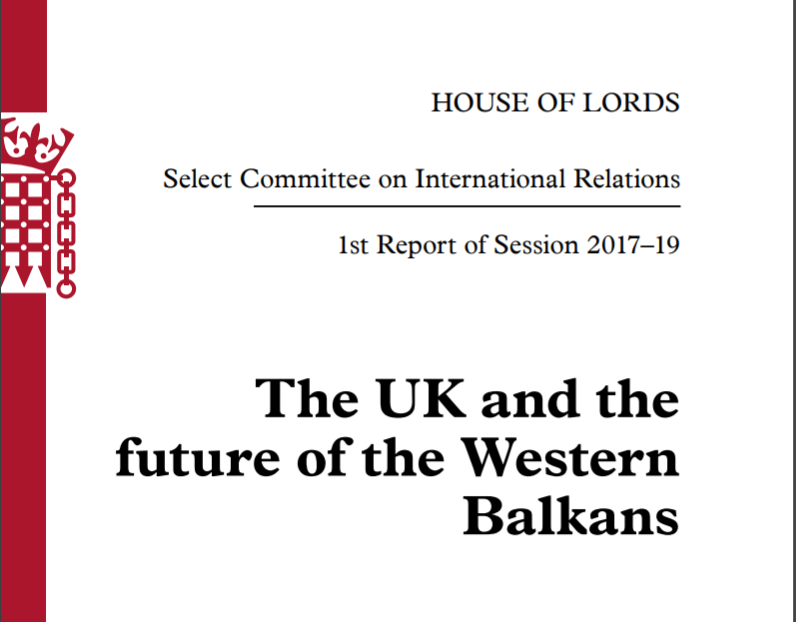THE FUTURE OF THE WEST BALKANS AND THE CHALLENGES FOR THE YOUTH

Last year, representatives of the House of Lords of the United Kingdom visited the Western Balkan countries involved in the Berlin Process, among which is Macedonia. The main purpose of the visit was to explore the need for active participation of the United Kingdom in the Berlin Process and to explore the current impact on the processes in this part of Europe. To this end, the representatives of the Committee on International Relations met with various stakeholders from several sectors of action in the Western Balkans. In September, the National Youth Council of Macedonia, whose strategic partner is the British Embassy Skopje, was invited to a meeting with representatives of the Committee on International Relations.
In the report “The UK and the Future of the Western Balkans” the Lords International Relations Committee states that the United Kingdom must continue its engagement with the region, along with international partners, to protect the progress made in the region. The report also incorporates the recommendations and challenges conveyed by the representatives of the National Youth Council of Macedonia.
In this report, the Committee notes the Council’s proactive role in building long-term mechanisms for communication with departmental ministries to include young people in decision-making processes, including the Berlin Process and the European-level youth activities, together with the European Youth Forum. The membership of the Council in the youth European family is seen as a great step forward in the integration process, with the added value that such a process is led by the youth for the youth.
In addition, the Council’s recommendations are in line with the general conclusion that “the UK must continue to support the Western Balkan countries and advocate for their accession to the EU”, noting active support for the deepening co-operation with the UK Parliament and the British Council.


